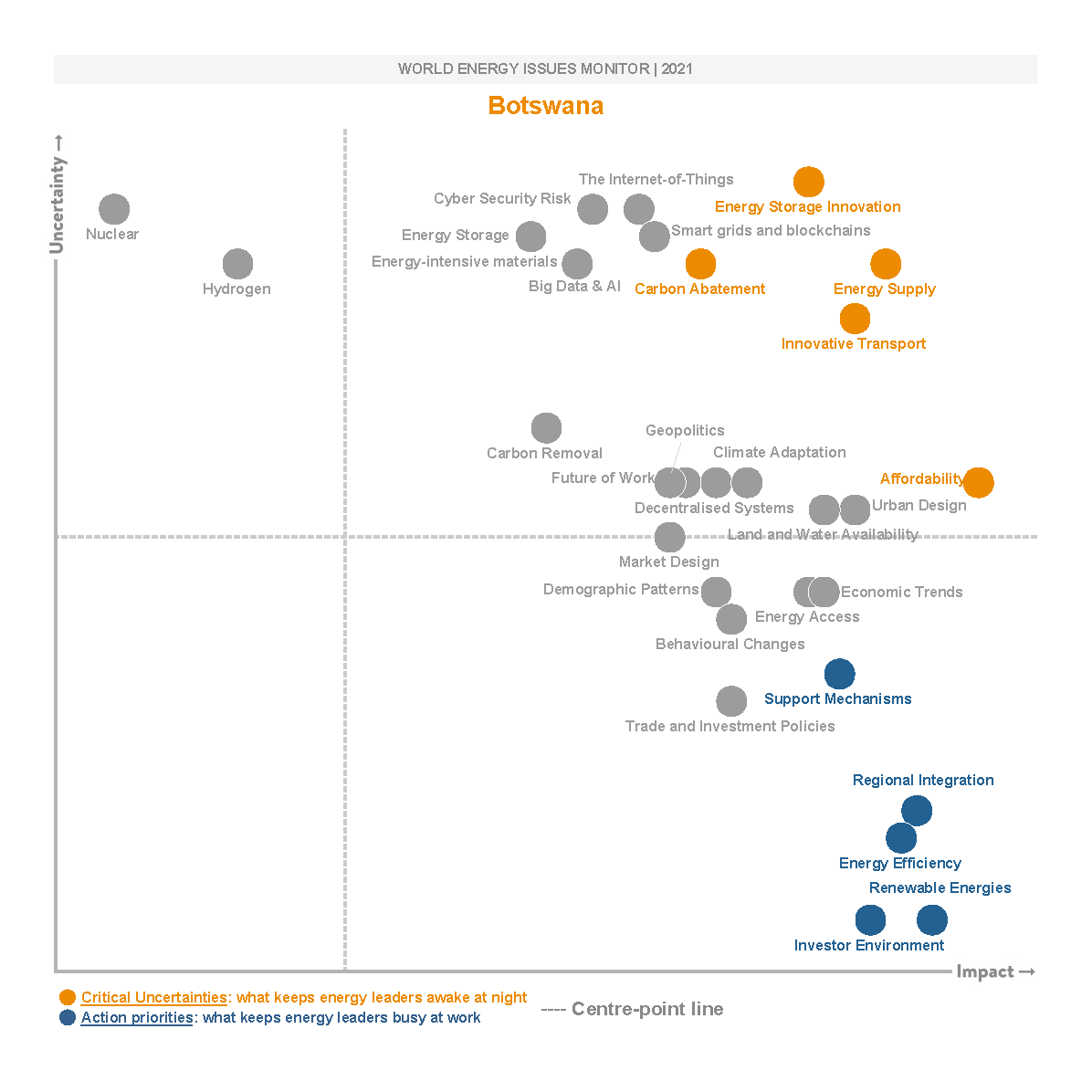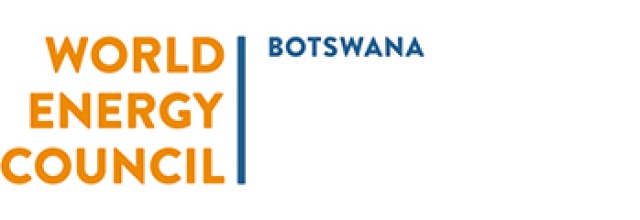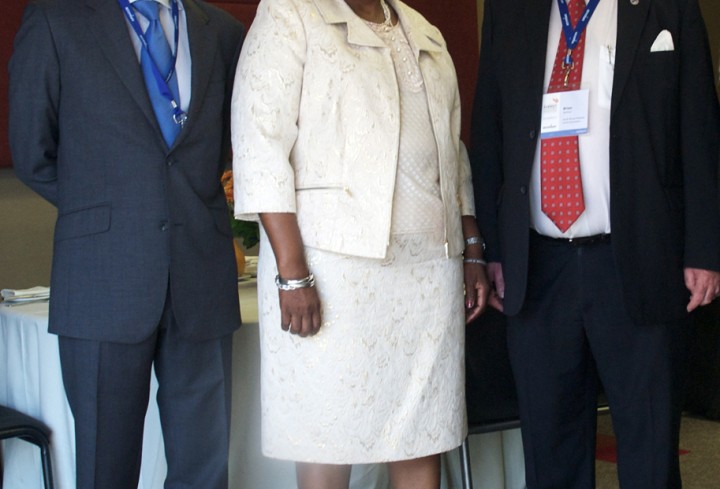The Botswana National Committee aims to promote sustainable energy development in Botswana, as a part of the World Energy Council’s energy vision. As a member of the World Energy Council network, the organisation is committed to representing the Batswana perspective within national, regional and global energy debates. The committee includes a variety of members to ensure that the diverse energy interests of Botswana are appropriately represented. Members of the committee are invited to attend high-level events, participate in energy-focused study groups, contribute to technical research and be a part of the global energy dialogue.
Energy in Botswana

Renewable energies are contemplated in Botswana’s current National Development Plan as resources that can enable the country to diversify its energy mix and improve energy security. In 2020 Botswana approved a 20-year energy plan through which renewables will account for 28% of electricity generation.
Through the ongoing Rural Electrification programme (to increase energy access) the country is able to attain a 2% yearly increase in access rate. This is achieved through a government subsidy scheme of approximately 500 USD per household over the past 10 years. To augment grid access, the government has initiated an off-grid solar programme at a cost of approximately 4.4 million USD, which offers solar energy systems for water pumping, water heating and home systems. These programmes will help Botswana to achieve universal access to modern energy services by 2030.
According to ESMAP Tracking SDG 7-The Energy Progress Report, Botswana’s energy intensity is relatively low at 3.35 MJ/USD 2011 PPP. The international comparison suggest that the energy intensity of the Botswana economy is fairly typical for its type. The country’s on-going National Development Plan defines an energy efficiency programme, the objective of which is to stimulate, promote and encourage energy efficiency and conservation by removing barriers for domestic and large power consumers. However, the energy efficiency programme is still at the infancy stage with various challenges that include
- limited private sector capacity;
- limited capacity for financial service providers;
- lack of incentives to encourage private sector participation;
- lack of coherent implementation and monitoring structures (enabling environment).
With the anticipated growth of approximately 1000MW new capacity of renewables, digitalisation is an imperative to deal with the intermittency inherent in solar and wind technologies. In 2020, the country pioneered a solar rooftop programme which, if successful, will accelerate the introduction of smart meters in the grid. With upcoming opportunities relating to the creation of a smart grid, there is a lot to be done; for example, digitalisation of the power infrastructure through modern platforms such as Geographic Information System.
In October 2015, Botswana submitted their Nationally Determined Contributions (NDC) to the United Nation’s Framework Convention on Climate Change (UNFCCC) with a target of a 15% absolute reduction of GHG emissions by 2030, taking 2010 as the base year. The main mitigation actions in the NDC targeted the energy, transport and agricultural sectors. The emission reduction target will not be achieved without significant support mechanisms as specified in the UNFCCC agreement. The country is currently reviewing its NDC through UNDP. The review process will entail
- determining the economic impacts of climate change on Botswana’s GDP;
- developing a more robust tracking tool for the implementation of the updated NDCs to enhance national capacity for monitoring;
- reviewing finance needs & innovative financial options for the NDC;
- maintaining the target of 15%.
Regarding extreme weather events, the country is currently reviewing its building regulations with a view to improving the energy efficiency of its building stock. Through the Botswana Bureau of Standards, Minimum Energy Performance Standards are being developed. However, more work is to be done to educate architects, property developers and managers on energy efficiency issues. According to the Energy Efficiency Strategy, public and commercial buildings are expected to save 2020TJ of energy by 2032.






